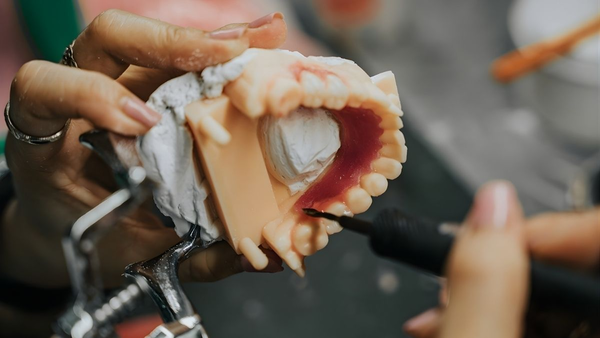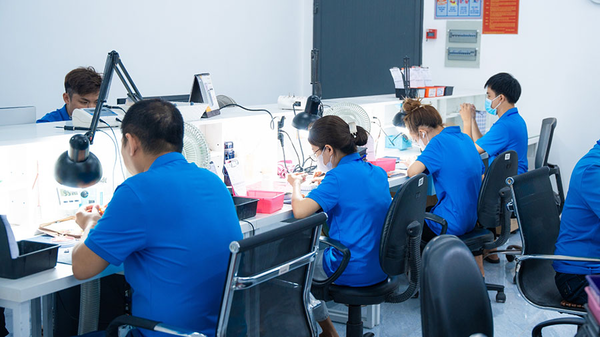In today’s interconnected world, dental practices often rely on international dental laboratories for cost-effective solutions and high-quality products. While these partnerships offer significant advantages, they also introduce complex compliance challenges, particularly concerning the protection of patient health information.
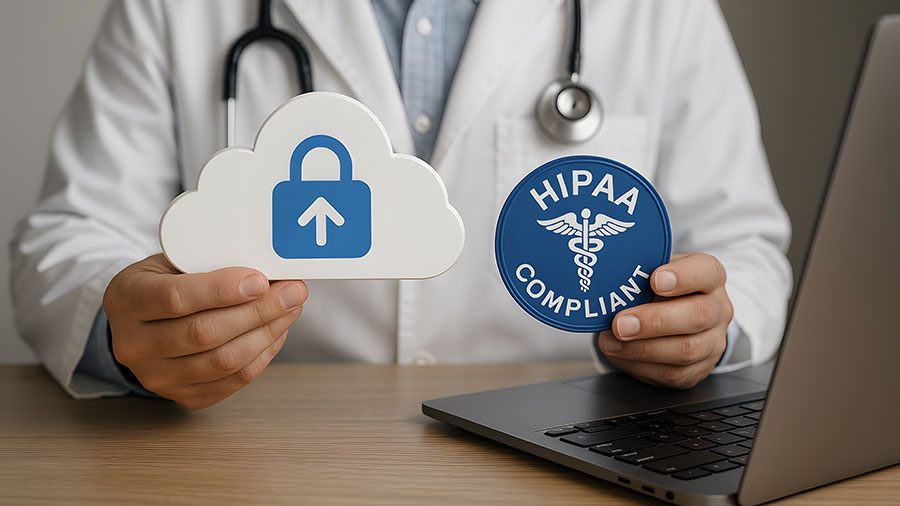
Table of contents [Show]
In today’s interconnected world, dental practices often rely on international dental laboratories for cost-effective solutions and high-quality products. While these partnerships offer significant advantages, they also introduce complex compliance challenges, particularly concerning the protection of patient health information. For U.S.-based dental practices, maintaining HIPAA compliance when working with international labs is critical to safeguarding Protected Health Information (PHI) and meeting regulatory standards.

This article provides a comprehensive overview of HIPAA compliance for international dental lab partnerships, highlighting legal classifications, compliance challenges, key requirements, and best practices to ensure secure and compliant collaborations.
Legal Status of Dental Laboratories Under HIPAA
Dental laboratories occupy a unique position under HIPAA regulations. Unlike business associates, dental labs are classified as healthcare providers when they transmit PHI electronically in connection with HIPAA-covered transactions.
Key Implications:
Covered Entity Status: Dental laboratories are considered covered entities, meaning they are directly subject to HIPAA requirements.
No Business Associate Agreement (BAA) Required: According to the American Dental Association (ADA), dental practices can share PHI with dental labs for patient treatment without needing a BAA, as labs are healthcare providers in their own right.
This classification simplifies certain aspects of compliance but does not eliminate the need for robust data protection measures, particularly in international partnerships.
International Compliance Challenges

When dental practices partner with international dental laboratories, they encounter unique compliance hurdles that stem from the cross-border nature of PHI transfers.
Cross-Border Data Transfer Regulations
HIPAA is a U.S. law, but international partnerships must also comply with the data protection laws of the receiving country. For instance:
Dual Compliance Obligation: Both HIPAA and the receiving country’s regulations (e.g., GDPR in the European Union) must be adhered to.
Data Localization Risks: Some countries mandate that healthcare data remain within their borders, complicating international collaborations.
Jurisdictional Complexities
Countries have varying standards for health data protection:
GDPR vs HIPAA: GDPR often imposes stricter requirements, such as broader patient rights and more stringent consent protocols.
Conflicting Standards: Differences between HIPAA and international regulations can create compliance conflicts, requiring careful navigation.
Cultural and Operational Differences
International laboratories may have varying levels of familiarity with HIPAA requirements, necessitating additional training and oversight.
Key Compliance Requirements for International Partnerships
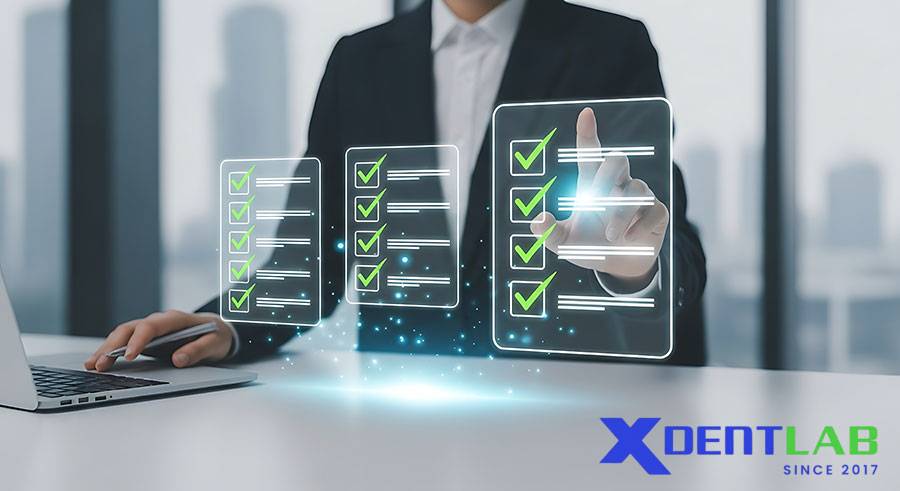
Ensuring HIPAA compliance in international dental lab partnerships requires meeting specific regulatory and security standards.
FDA Registration
Foreign dental laboratories working with U.S. practices must be registered with the FDA. This is a separate but complementary requirement to HIPAA compliance, ensuring the lab meets U.S. regulatory standards for dental products and services.
Data Security Measures
Robust security protocols are essential to protect PHI during cross-border transfers:
Encryption: All PHI must be encrypted during transmission to prevent unauthorized access.
Secure Storage: PHI must be stored in secure systems with access controls.
Access Limitation: Only authorized personnel with a legitimate need should access PHI.
Audit Trails: Maintain logs of all data access and modifications for transparency and accountability.
Privacy Safeguards
International labs must implement privacy policies aligned with HIPAA standards:
Minimum Necessary Disclosure: Share only the PHI required for specific tasks.
Patient Consent: Obtain explicit patient consent for international data transfers when required.
Communication Protocols: Ensure secure and clear communication between dental practices and lab technicians.
Best Practices for Compliance

To mitigate risks and ensure compliance, dental practices should adopt the following best practices when partnering with international dental labs:
Due Diligence
Conduct thorough assessments of the international lab’s compliance status, data protection practices, and familiarity with HIPAA requirements.
Written Agreements
Although a BAA is not required, formal contracts should outline:
Data Security Obligations: Encryption, storage, and access control measures.
Breach Notification Procedures: Immediate reporting of any data breaches.
Retention and Destruction Policies: Ensure PHI is securely destroyed after its intended use.
Regular Audits
Implement periodic compliance audits to verify that international partners adhere to HIPAA standards and local data protection laws.
Staff Training
Educate personnel involved in PHI transfers about:
Cross-border data protection requirements.
HIPAA regulations and their implications.
Risks associated with non-compliance.
Emerging Considerations

The global healthcare data landscape is evolving, with increasing scrutiny on cross-border PHI transfers. Dental practices must stay informed about emerging trends and regulations:
Data Localization Requirements
Countries like China and India are implementing stricter localization laws, requiring healthcare data to remain within their borders. This may restrict international partnerships or necessitate alternative workflows.
Advanced Security Technologies
Innovations in cybersecurity, such as blockchain and AI-driven monitoring systems, are becoming essential for ensuring PHI protection during international collaborations.
Regulatory Updates
Regular updates to HIPAA and international laws (e.g., GDPR revisions) require dental practices to remain vigilant and adapt their compliance strategies accordingly.
Conclusion
Maintaining HIPAA compliance in international dental lab partnerships is a complex but essential task for U.S.-based dental practices. By understanding the legal status of dental labs under HIPAA, navigating cross-border compliance challenges, and implementing robust security measures, practices can protect patient privacy while benefiting from global collaborations.
For dental practices seeking secure and compliant outsourcing solutions, XDENT LAB offers FDA-registered services, state-of-the-art technology, and a commitment to HIPAA compliance. With a proven track record in Lab-to-Lab full-service partnerships, XDENT LAB ensures quality, consistency, and regulatory adherence in every collaboration.
XDENT LAB is an expert in Lab-to-Lab Full Service from Vietnam, with the signature services of Removable & Implant, meeting U.S. market standards – approved by FDA & ISO. Founded in 2017, XDENT LAB has grown from local root to global reach, scaling with 2 factories and over 100 employees.. Our state-of-the-art technology, certified technicians, and commitment to compliance make us the trusted choice for dental practices looking to ensure quality and consistency in their products.
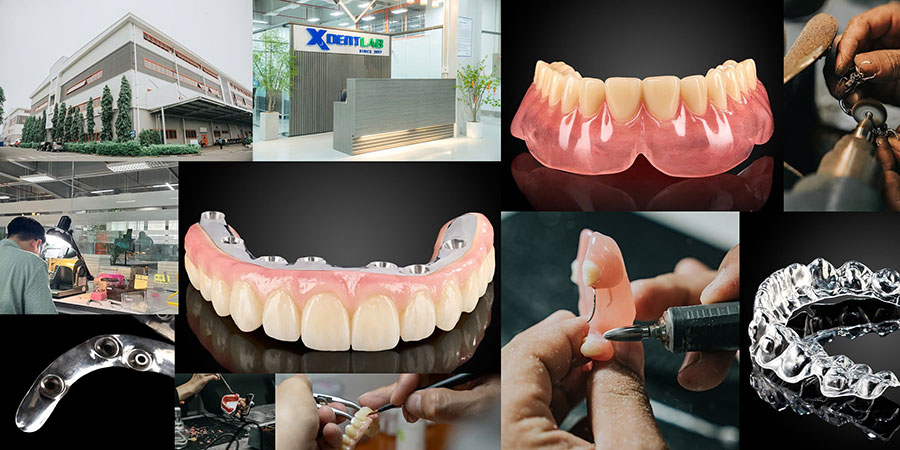
Our commitments are:
100% FDA-Approved Materials.
Large-Scale Manufacturing, high volume, remake rate < 1%.
2~3 days in lab (*digital file).
Your cost savings 30%.
Uninterrupted Manufacturing 365 days a year.
Contact us today to establish a strategy to reduce operating costs.
--------❃--------
Vietnam Dental Laboratory - XDENT LAB
🏢 Factory 1: 95/6 Tran Van Kieu Street, Binh Phu Ward, Ho Chi Minh City, Vietnam
🏢 Factory 2: Kizuna 3 Industrial Park, Can Giuoc Commune, Tay Ninh Province, Vietnam
☎ Hotline: 0919 796 718 📰 Get detailed pricing
Share this post:

